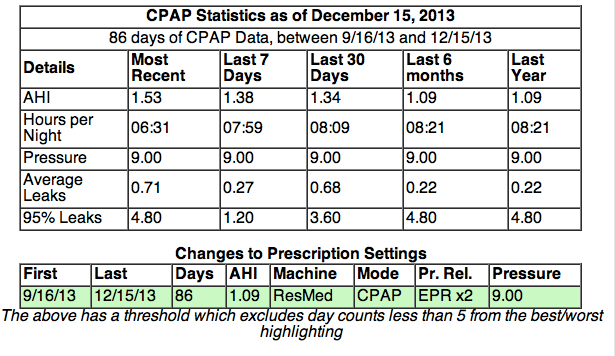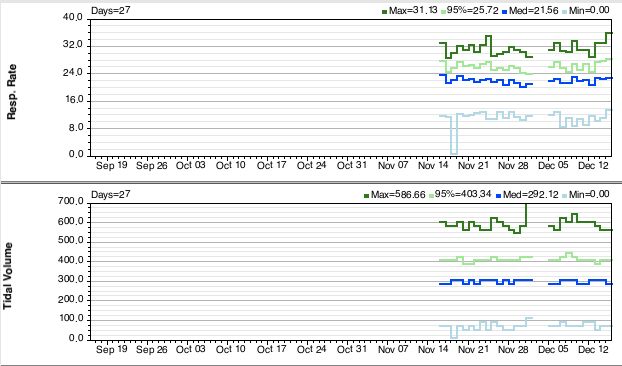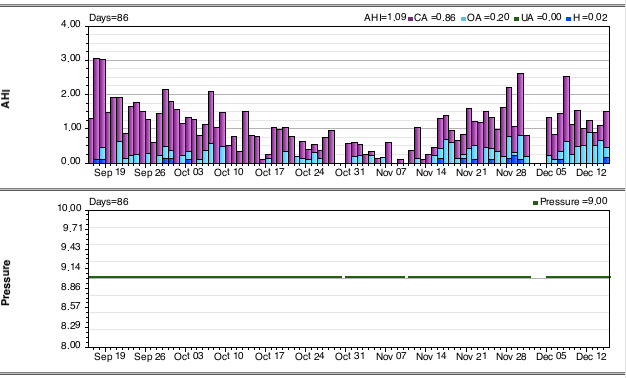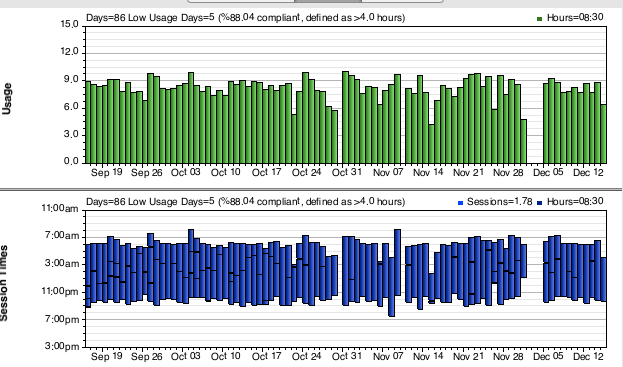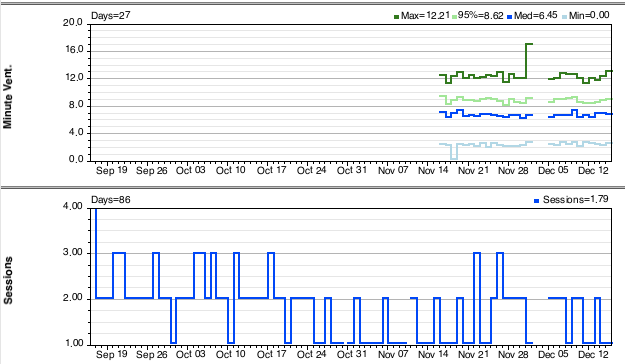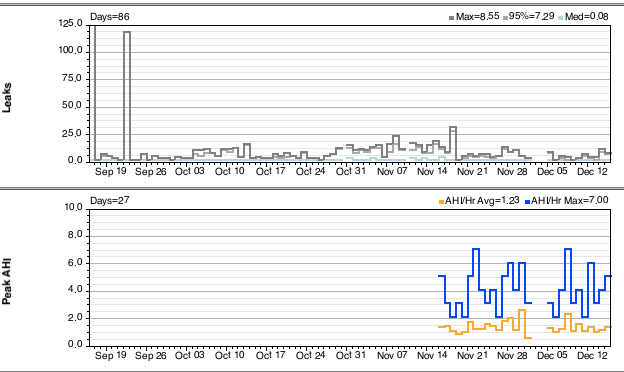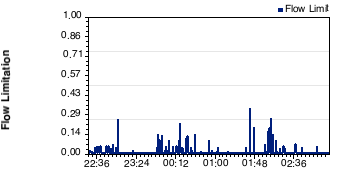websiteguy,
I have a great deal of empathy for your situation. My first three months of PAPing were plain out hellish and the next three felt like purgatory because of insomnia issues that had set in during the first three months. But I wanted to respond to your post because you write:
All of my labs were normal except that I do have a high marker for inflammation(SED Rate). I have seen many doctors for the inflammation and there has been zero issues found.
Prior to my OSA diagnosis, I'd been waking up with hand and foot pain for several years and it was always written off as a touch of some unspecified type of arthritis. I'd frequently complain of minor-to-moderate, but chronic achiness all over at my annual physicals and make special mention of the morning moderate to severe in my hands and feet that would get better as the day progressed; so the doc did several SED tests in the 5 years prior to my OSA diagnosis. Sometimes my pre-CPAP SED rate was slighly high, some times it was at the high end of normal. But no cause was ever found (although lupus was investigated at one point) and my SED rate was not alarmingly high, and hence the pain was just written off as a touch of some unspecified type of arthritis.
The very first sign that PAP was doing me some good was when I started to notice the phrase, "Woke up with no hand and foot pain this morning," appearing 3-4 times a week in my insomnia/sleep journal. This happened about 5 months after I started PAPing. If I hadn't been keeping the insomnia journal, the start of the "no hand and foot pain on waking" is something that I'm not sure I would have noticed right a way. But nothing else had changed as far as treating the hand/foot pain or the general achiness. When I asked the PA if it was possible that the hand and foot pain's disappearance might be related to the PAP finally doing me some good, she said, "Yes. It could very well be the result of PAP." She went on to explain that untreated OSA often can trigger low levels of inflammation throughout the body, and low levels of generalized inflammation can easily manifest itself as low grade, but chronic pain. By the end of 6 months of PAPing, I was waking up with no hand or foot pain 5-7 days out of every week. Even now, I have to say that's the number one (positive) difference that PAP has made in the quality of my daily life: I have significantly less levels of general achy pain now and hardly ever wake up with significant hand and foot pain.
I mention all this because it can take a while for the body to fully heal from the damage caused by untreated OSA. And perhaps the untreated OSA has been a contributor to, or even the major cause of, your inflammation issues. And perhaps that's why you are still feeling tired----your body is still working on healing itself of the inflammation indicated by the higher than normal SED rate.
Since you are 90 days into PAP and not really feeling much different, it's worth doing several things:
1) Keep a journal of how you're feeling---not just how you think you're sleeping. If you have symptoms of the inflammation that seems to have no cause, keep track of how those symptoms are being manifest. If you've usually had some pain on most days prior to starting PAP, keep track of your pain levels as well as how tired you feel during the day time. Perhaps with the aid of a journal you will start to notice some subtle, but important improvements in areas of your life other than the fatigue.
2) If you have not had a follow-up with the sleep doc, it's worth setting one up. Perhaps with your data and a full medical history, the sleep doc can shed some light into both why it is taking a while to start to feel better, how much longer you should be patient, and where to go from here if you're still not feeling any better in another couple of months.
3) As pugsy pointed out one of zoloft's side affects is fatigue. You said you've been weaned off the zoloft. How long have you not been taking it? It's worth asking the doc who prescribed it, "How long is it going to take for any zoloft-induced fatigue to start to go away?" And were you switched to a different anti-anxiety med? If so, it's worth asking about whether the new drug could be triggering fatigue.
I am slightly overweight, but my tiredness prevents me from being able to work out more frequently.
No one wants to hear it, but:
More exercise (with in reason) usually helps you feel more energetic and less tired and less fatigued.
Yes, it's hard to force yourself to go do some exercise when you're really, really exhausted, particularly if "working out" means leaving your house and going to a gym. But sometimes even a very modest increase in the amount of physical activity during the day can help you find the energy to start doing more serious exercise on a regular basis.
On the days when you just can't "work out" because you feel too tired, it's worth trying to make yourself at least take a brief walk around the block after supper. In other words, for the time being start looking for opportunities to do some physical activity in very small chunks of time rather than thinking of the potentially overwhelming idea of "I ought to go to the gym and work out." Start with such simple things as:
- Park the car farther away from the door of the store or the door to the office you work in and walk a few feet further.
- Take the stairs instead of the elevator if you're only going up or down one or two flights.
- Walk around the block after supper if the weather is halfway decent
- Do some serious housework and acknowledge that it counts as exercise
- Find some kind of simple exercise that you like doing (well enough) and that you can do at home and try to do it for a mere 3-5 minutes a day for the next month. Any thing else is icing on the cake, but commit to doing that one simple thing for 3-5 minutes each day regardless of how tired you feel.
